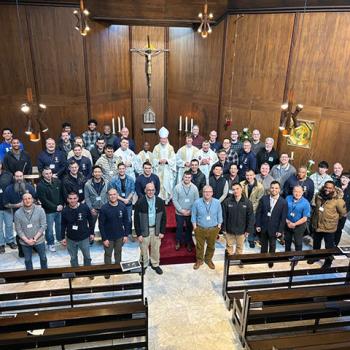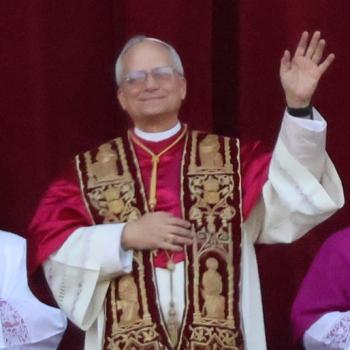 Elder Dallin H. Oaks delivered a major address on religious freedom at Chapman University law school last Friday. His primary themes were familiar to LDS observers who follow this issue: Cardinal Francis George, president of the U.S. Conference of Catholic Bishops, delivered a speech on threats to religious freedom at BYU last year, and Elder Oaks himself spoke on the same issues at BYU-Idaho just a few months before that. Indeed, the proper role of religious voices in public debate has been a question of long-standing interest for Oaks, who was writing on the topic more than twenty years ago, long before the current controversy surrounding the Church's support of Proposition 8 brought attention to the issue.
Elder Dallin H. Oaks delivered a major address on religious freedom at Chapman University law school last Friday. His primary themes were familiar to LDS observers who follow this issue: Cardinal Francis George, president of the U.S. Conference of Catholic Bishops, delivered a speech on threats to religious freedom at BYU last year, and Elder Oaks himself spoke on the same issues at BYU-Idaho just a few months before that. Indeed, the proper role of religious voices in public debate has been a question of long-standing interest for Oaks, who was writing on the topic more than twenty years ago, long before the current controversy surrounding the Church's support of Proposition 8 brought attention to the issue.
The Chapman speech appears to be a re-working of the BYU-I address, lengthened substantially and more closely argued but touching on similar points: religious freedom should hold pride of place as the pre-eminent civil liberty; the free exercise of religion is being threatened; and religious voices are being silenced in the public square by intimidation, particularly in the debate around homosexuality and gay marriage. But Oaks adds two ideas to this most recent iteration of the argument: a justification for the special protection that religious expression enjoys on the basis of its unique power of moral persuasion, and a narrative of a rising tide of moral relativism that has set into motion the erosion of religious liberty. These ideas add philosophical and historical dimensions to what was previously a legal and political analysis. The result is a long—even unwieldy—argument with a complex structure and many moving parts, and it invites a sustained reading. This week I summarize Oaks' speech in some detail, paying special attention to the structure of the argument, its major claims and their relationships, the kind of evidence he marshals for each, and the assumptions that underlie his conclusions. Next week I'll consider two of his claims in more detail.
Oaks' argument is built around a family of four related claims about the changing role of religion and morality in society, all of which are framed by a philosophical warrant. This framing warrant, the link between claims and final conclusion, is the notion that religious expression in the U.S. deserves special legal protection over and above expression motivated by other sets of ideas—feminism, say, or environmentalism. In support of this notion he points to the founders' placing of the establishment clause, the guarantee of free exercise of religion, in what he sees as the politically privileged First Amendment in the Bill of Rights; the "pre-eminent" position of the First Amendment, he suggests, means that free religious expression and practice should be the "dominating civil liberties and civil rights." Oaks justifies this privilege by pointing to the idea, a very old one, that by means of its unique persuasive power to motivate personal behavior, religion acts as a special ally to state power by internalizing the civic virtues necessary in a free society. The state doesn't have to legislate against avarice, sloth, and revenge, for example, if religion prosecutes those crimes in the court of conscience.
With this warrant in place, Oaks proceeds to lay out his claims in something like a domino-style series. He assigns the greatest causal significance to the claim that he argues last in the series: that moral relativism is gaining traction as the philosophical ground for public debate. The result of this foray of relativism, he argues, is "a loss of respect for" and diminishment of religion. The implications of moral relativism for religion and democracy are hoary philosophical and historical questions, and this is the point on which Oaks, by his own admission, has least command of the primary sources. His evidence for this claim is thus something of a cutting-bed of quotes: he cites a carefully-curated collection of religious commentators, including Catholic, Protestant, Jewish, and Mormon representatives, all of whom lament the contemporary social ills that they see arising from a rejection of moral absolutes.
This incursion of moral relativism, Oaks argues, leads to a diminishment of the cultural prominence of religion, and this constitutes his second claim. Precisely what this diminishment entails and over what timeframe is never spelled out precisely, but in the course of the speech Oaks mentions declining belief in a personal God, declining organized religious affiliation among young people, declining rates of personal religiosity, and a decline of the prominence of God in public discourse. These of course are empirical rather than philosophical questions, though they are inherently messy and inexact, and Oaks points to a bevy of recent surveys and studies to support his claim.





